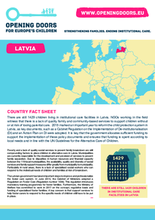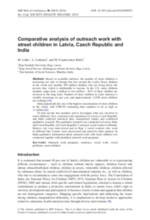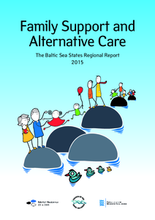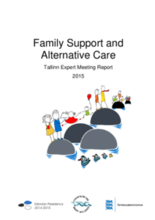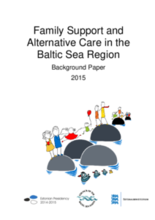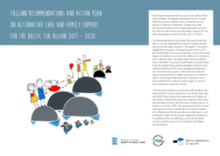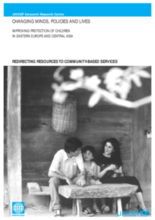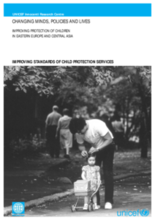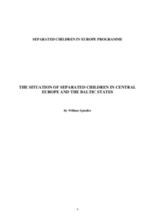Displaying 21 - 30 of 30
This Country Fact Sheet from Latvia reports that there are currently 1,429 children in Latvia living in institutional care facilities.
This study notes that there are currently 700 million people below the poverty line. According to this study, around 40 percent are considered vulnerable children. It further states that according to UNICEF India has approximately 11 million children living on the streets. It is one of the highest concentration of the street children in the world. To investigate the status of street children, this study investigated outreach work in Latvia, Czech Republic and India.
This report was developed as part of a mapping study aimed at analysing the situation of alternative care and family support in the Baltic Sea Region, assessing the achievements since the 2005 Ministerial Forum and identifying relevant opportunities and challenges for the future.
This report provides an overview of the two-day expert meeting on alternative care and family support in the Baltic Sea Region that took place in Tallinn, Estonia in May 2015.
This background paper was developed as part of a regional study which gathered relevant data and information on family support and alternative care in the eleven Member States of the Council of the Baltic Sea States (CBSS).
Government representatives, experts and professionals from the Baltic Sea Region including Denmark, Estonia, Finland, Germany, Iceland, Latvia, Lithuania, Norway, Poland, the Russian Federation, Sweden and wider Europe gathered at a two-day expert meeting in Tallinn, Estonia and, together, endorsed a set of recommendations and action plan on alternative care and family support on 6 May 2015.
The Parliament of Latvia has issued a formal complaint to the UK House of Commons, claiming that children of Latvian descent are being “illegally and forcibly adopted by British families,” says the article.
Provides an overview of social service provision in Eastern Europe and Central Asia, and provides information on ways to move resources away from institutional care, and into community-based social services. Contains specific examples from Latvia, Iceland, Sweden, Romania and other transitioning countries.
Contains practical tools and policy guidance for family and child welfare policy makers and practitioners. Relevant topics include gatekeeping, redirecting resources into preventive and family based services, and standards of care.
This report reviews childcare policy for separated children in the Central Europe and the Balkan States. It emphasizes the need to establish training, resources and effective procedures in order to meet the standards outlined in the Statement of Good Practice. Data from Bulgaria, Croatia, the Czech Republic, Estonia, Hungary, Latvia, Lithuania, Poland, Romania, Slovakia and Slovenia is presented.

